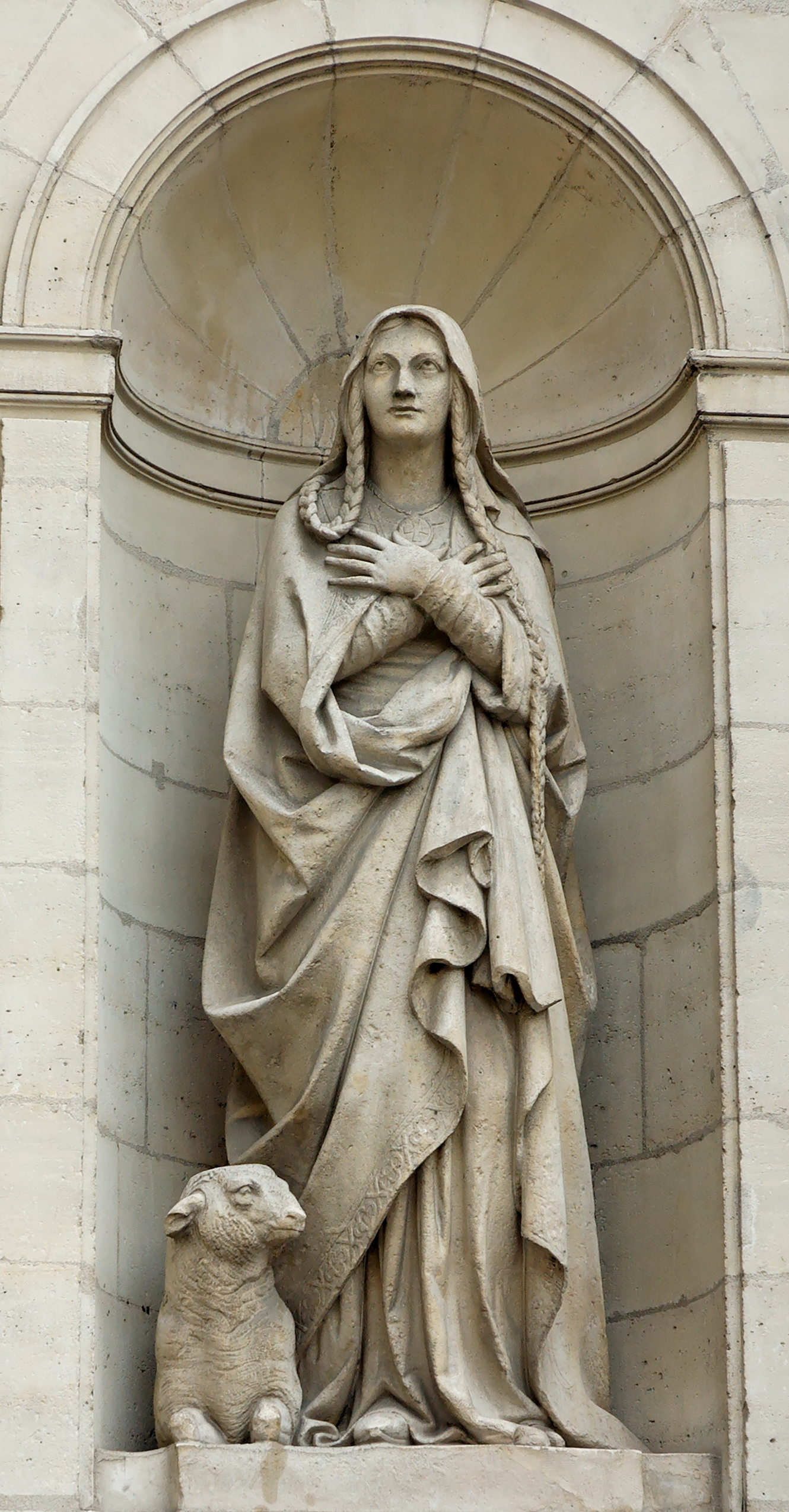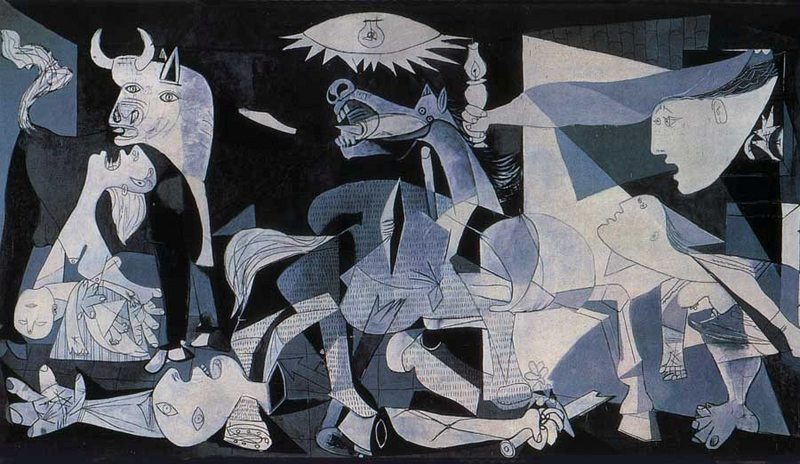« February 21, 2018 | Main | February 23, 2018 »
February 22, 2018
St. Genevieve: "I know it, I see it. The Huns will not come..."
Get down on your knees and pray! I know it, I see it. The Huns will not come.
Sainte Genevieve (422-512) saved Parisians from the Huns, the legend goes, in 451. People had started to flee Paris in anticipation of the invasion led by Attila--but stopped when she told them she had a vision that the Huns would not enter Paris. She became the city's patron saint. In 1928, a grateful Paris erected a statue to her on the Pont de la Tournelle (now about 400 years old). Genevieve is facing east, the direction from which the Huns approached. She is also said to have converted Clovis, king of the pagan Franks, to Christianity. If you walk from the Right Bank to the Left Bank near the Ile Saint Louis, you walk right under her, with Notre Dame on your right.

Posted by JD Hull at 11:59 PM | Comments (0)
Guernica. The German Officer to Picasso: "Did you paint this?"

Here's a WWII story I first heard in 1992 in Paris from a struggling young Irish painter named Richard hustling his drinks and living by his wit, humor, charm and talent on a few choice blocks of the Right Bank. I never found out what happened to Richard. But ever since I've thought about this simple and apparently fairly well-known Picasso story, and more and more since 2005.
In the Fall of that year, Julie McGuire and I were together in Madrid. We made time to see Guernica, very likely Pablo Picasso's most famous painting, and some other great modern Spanish works, at the Museo Reina Sofia in central Madrid. Picasso painted Guernica in 1937 after both German and Italian bombers shelled Guernica, in Spain's Basque Country, on April 26 of that year, during the Spanish Civil War. The bombing by Germany and Italy happened at the request of Spanish Nationalist forces. The painting is an outcry, protest and lament of the self-assured, polite, smooth and famously composed Picasso.
The smallest details of the story seem to change. But historians and journalists seem to agree on the following:
In 1942, during the 1940-1944 German occupation of Paris, German officers often visited Picasso's Paris studio at a time when some of his paintings were being burned as decadent. On one visit, an aggressive Gestapo officer found a simple postcard with an image of Guernica in the studio. The officer confronted the painter, and held before Picasso's face the postcard with its breathtaking indictments of war, national pride, meaningless death, pointless suffering, waste, government hypocrisy, inflamed leadership and self-destruction.
"Did you do this?", the officer asked.
“No, sir. You did."
Posted by JD Hull at 03:59 AM | Comments (0)